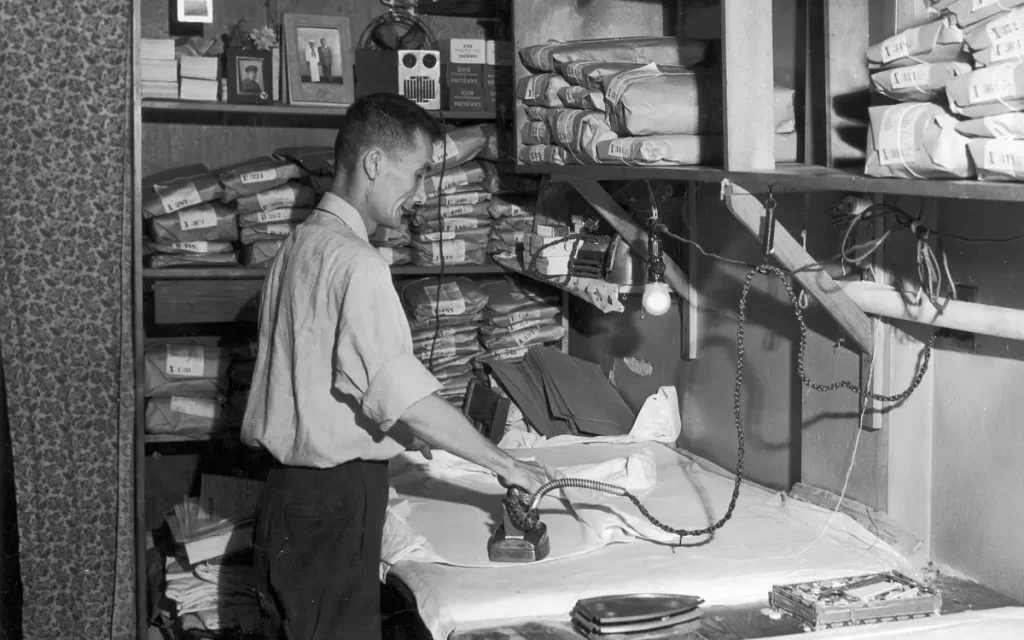A-World-Without-Skills
 A fascinating piece appeared in The Wall Street Journal concerning the skill levels of new hires. Or, rather, the lack of skills, even in fields such as engineering.
A fascinating piece appeared in The Wall Street Journal concerning the skill levels of new hires. Or, rather, the lack of skills, even in fields such as engineering.
Firms are taking in new graduates only to discover that while they might know much, they can’t actually do anything, not even basic things that every engineer is supposed to know. The reason is that most of these kids have only done Zoom classes. They have no practical experience.
Think of this. The freshman class of 2020 got hit with virus mania in the spring, and in-person classes ended. Their sophomore year was awful, just staring at a screen. When they came back, if they did, they had to wear masks and get jabbed and jabbed again. Their junior year was more of the same nonsense, with off-and-on classes but seriously truncated experiences. Then they graduated.
So much for college. So much for the six figures of debt they accumulated in these years. And so much for learning by doing.
It all serves as a reminder. Skills come from what we do, including screw-ups, failures, adaptations, and gradually getting better at something, anything, whatever it is. Without hands-on experience, the only skill you learn is rote memorization and gaming the system. To be sure, today’s college graduates are very good at that, but their skills are severely lacking in many practical areas of life.
What are young people prepared for? Maybe a Zoom job pretending to work in a management position—exactly the sort that’s vanishing as major corporations are desperately cutting labor costs by purging management of its outrageous excesses. It goes on daily. When CVS announced huge layoffs, it made it clear that there would be no losses among the people who are “customer facing.” Those people remain in huge demand.
But how many of today’s college graduates are even prepared to stand behind a checkout counter and speak coherently to people, much less handle money or deal with scanning codes and the like? Not many.
I’m sure you have noticed this in general since the onset of the digital age, when everyone was tempted by the idea that we would migrate to the cloud and dispense with the burdens of physical reality. It turns out to be one of the greatest lies ever told. The costs are huge.
Real skills are what make the world work. We’ve got an entire generation, or maybe two, that simply lacks skills we once took for granted.
Let’s just consider one example: ironing clothes. It so happens that I’m a real expert in this skill, at least as compared with most other people I know. This is because I worked in clothing stores for years and learned under real experts. I developed the skill myself and now do all that’s involved without thinking about it.
But, yesterday, I was ironing a white cotton shirt and began to think through all that could go wrong but didn’t go wrong. There are so many variables. Steam or not? Starch and, if so, how much? What’s the right temperature setting? How does one know if the fabric is getting too hot and on the verge of being scorched?
Should the sleeve have a crease? And what of the cuffs? And do both sides need to be ironed or only one? What’s the best way to navigate around buttons without accidentally popping them off? How can a collar be positioned on the ironing board in a way that’s most effective and efficient? How long should ironing a shirt take—5 minutes or 25 minutes—and what’s the reasonable expectation?
It might all seem easy by description, but it simply isn’t. I’ve spent years screwing up every aspect of this process. I’ve scorched collars, broken buttons, creased cuffs, and clumped up the starch. My skills improved gradually over time by virtue of making errors. And this is with only one type of clothing. Taking on a wool suit introduces a full range of other problems.
Honestly, I can’t think of anyone I know under the age of 30 who knows how to do any of this. As a result, most people don’t iron at all. They just mill around with rumpled clothing or only wear stuff that requires no ironing at all. The skill itself has experienced a cultural atrophy, so far as I can tell.
But that’s just the beginning of it. Real expertise takes years and stakes that are much higher. Engineering is an obvious case, but there are less obvious ones. There’s a butcher in town of whom I’m in complete awe. He runs a bone-cutting machine that’s the meanest and most potentially vicious thing I’ve ever seen. Someone will order a rack of ribs, and he grabs a big carcass from the refrigerator. He throws it on the machine and shoves it this way and that, moving the bones and meat with incredible expertise.
I watch him because it’s at once terrifying and wildly impressive. It seems like he’s hardly paying attention and moves like lightning through all meats: chickens, goats, lambs, or anything. It’s awesome. And consider: one wrong move, and he would be missing a finger, a hand, or an arm. Just observing his work makes one’s heart race. It’s utterly beautiful.
You think you’ll never need this skill because others have them. Fine. But real skills are needed in everyday life. Cooking is an example. Just making a burger in a skillet isn’t as easy as people think. You have to know how to shape the meat, and it depends on how lean the mince is because that determines how it will respond to the heat.
You need to know how hot the skillet should be. You need to know when to deglaze the pan so that the sugars in the fat will adhere to the meat and become more delicious. You need to know when to take the burger out of the pan with knowledge that it will continue to cook as it cools.
None of this knowledge comes from ebooks or screens. It’s simply not possible to learn to cook this way. Even recipe books are of limited value. You can’t just follow a list of ingredients and cause a dish to magically appear.
For years, I baked bread. I started in college to use the resulting loaves as a tool in bartering for services. I did this because I was poor. It mostly worked. More importantly, I gained a life skill. Perhaps, I followed a recipe early on but gave it up quickly. I haven’t looked at a recipe in many years. I’ve taught others to bake bread, but only by showing and doing. It isn’t possible to learn how to knead dough by reading about it. It’s something that one has to do.
The loss of skills is having a profound effect on our lives. Sales of older homes are taking a dramatic dive simply because there are no workers available to do the necessary repairs. The few people out there who know plaster repair, wiring, or roofing are too expensive, and the wait is too long. Instead, people are buying new or just renting.
It’s true in car repair, too, which is why you have to wait a week or longer to get even the simplest task done. The loss of skills is even affecting the vaunted transition to green energy. If there aren’t enough engineers who can do things, it simply can’t happen.
And, yet, the economic transition away from bloated management structures back to doing actual work is happening very quickly, leaving an entire generation raised on TikTok and Zoom at a loss. We somehow managed to rob millions of the ability to be useful to others. This is true regardless of how many degrees they carry.
From 2020 to the present, people without actual medical skills, but rather only theories plus force, took over public health in most parts of the world. Look at the mess they made! This is what happens when abstract knowledge overrides real experience. You can destroy the world this way.
How to repair the problem? Start small. Iron a shirt. Make a hamburger. Clean a bathroom. It doesn’t matter what it is precisely. Just be useful, and see just how hard it truly is.
Views expressed in this article are opinions of the author and do not necessarily reflect the views of Watchman Research Media
Copyright © 2023 Jeffrey A. Tucker Author
 Isaiah prophesied that a king would come who would reign like no other. Details of his reign are given: his birth; his ministry in ‘Galilee of the Gentiles’; his lineage, from the line of Jesse; his anointing to do God’s work. Anyone who doubts the validity of Christ’s claim to kingship needs to look back to the accuracy of Isaiah’s predictions.
Isaiah prophesied that a king would come who would reign like no other. Details of his reign are given: his birth; his ministry in ‘Galilee of the Gentiles’; his lineage, from the line of Jesse; his anointing to do God’s work. Anyone who doubts the validity of Christ’s claim to kingship needs to look back to the accuracy of Isaiah’s predictions.